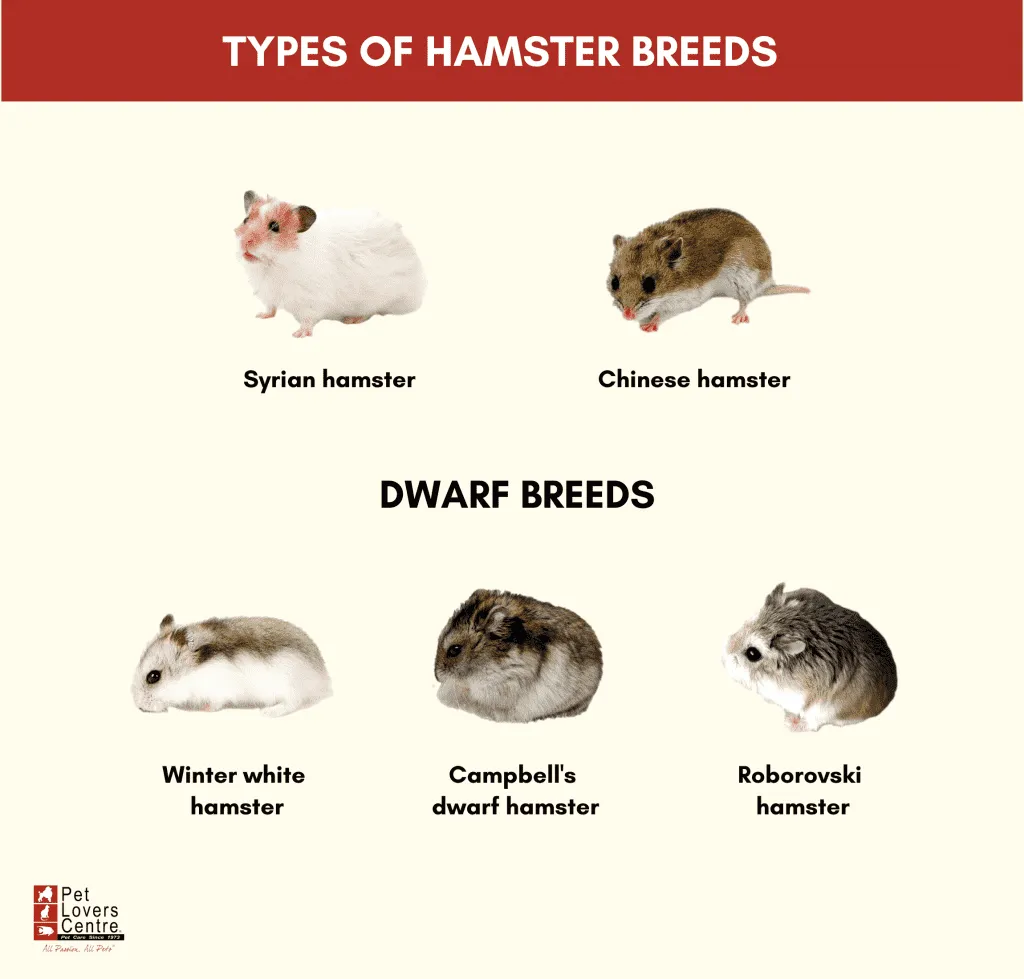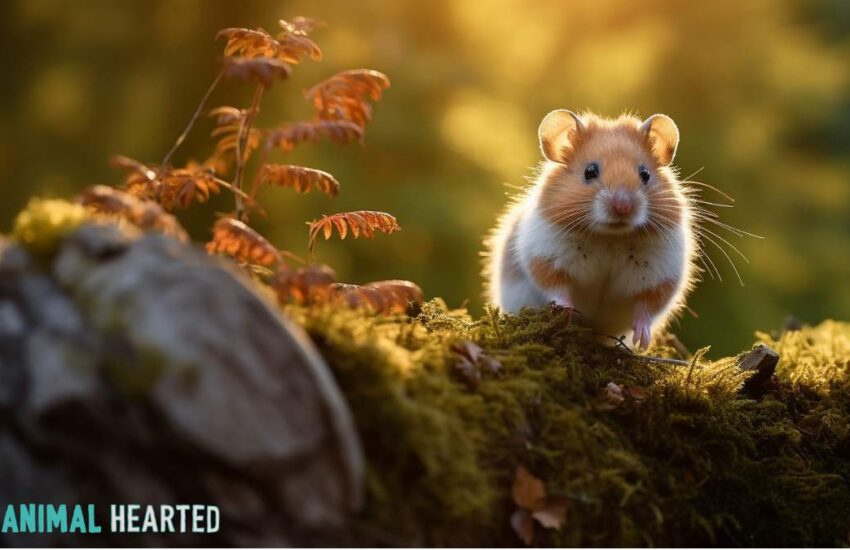Top Gentle Hamster Breeds
Understanding Gentle Hamster Breeds
When it comes to choosing a pet hamster, finding a gentle breed is paramount, especially if you’re a first-time owner or have children. Gentle hamster breeds tend to have calmer dispositions, making them ideal companions. Let’s explore various hamster types that are known for their friendly nature and easy handling. Understanding the distinct behaviors and characteristics of these breeds can help you select the perfect pet for your home.

Syrian Hamsters
The Syrian hamster, often referred to as the golden hamster, is one of the most popular and gentle breeds available. They are known for their friendly nature and willingness to interact with their owners. Syrian hamsters can be great pets for both adults and children because they tend to be less aggressive than other dwarf species. Their larger size also makes them easier to handle. Keep in mind, they are solitary animals and need their own space, so housing must be appropriately managed from the beginning.
Dwarf Campbell Hamsters
Dwarf Campbell hamsters are particularly known for their social and docile behavior. They are smaller than Syrian hamsters but packed with personality. These hamsters usually get along well with their cage mates, leading to playful interactions. To ensure their gentleness remains, it’s crucial to handle them gently and socialize them from a young age. Pairing them with compatible companions in a spacious habitat also encourages bonds that promote affectionate and gentle behaviors.
Popular Breeds of Gentle Hamsters
Several hamster breeds are recognized for their gentle natures, which make them excellent pets. Each breed has unique characteristics that appeal to different owners, from Siberian hamsters to Roborovski hamsters. In this section, we will remove the ambiguity surrounding which breeds are considered the most gentle and provide insights into their behaviors.
Siberian Hamsters
Siberian hamsters, also known as Russian dwarf hamsters, are notable for their affectionate nature. They are not as aggressive as many dwarf breeds and typically enjoy being held and played with. Their fluffy coats add to their charm, making them appealing to young children. Additionally, Siberians are social creatures that can thrive in multi-hamster settings, provided they have enough room to establish a hierarchy without fighting.
Roborovski Hamsters
Roborovski hamsters are tiny and swift, making them adorable companions, though they are less inclined toward being regularly handled compared to other breeds. While they may not be as cuddly, they do exhibit playful behaviors that can lead to gentle interactions over time. If well-socialized from a young age, Roborovski hamsters can display surprisingly friendly natures — they usually thrive on interaction, but potential owners should focus more on observation than frequent handling.
Care Tips for Gentle Hamsters
<pTo maintain the gentle nature of hamsters, proper care is essential. Hamsters thrive in environments where they feel safe and secure. Along with a suitable habitat, understanding their needs regarding handling, socialization, and health can go a long way in fostering friendly behavior. Here we highlight practical care tips.
Creating a Safe and Comfortable Habitat
A clean, spacious, and enriched environment is crucial for all hamster breeds. Use cages designed for hamsters with multiple levels, tunnels, and hiding spots to keep your pet active and engaged. Avoid small cages that limit mobility since cramped spaces can increase stress levels, potentially leading to aggressive behavior. Clean the habitat regularly to keep it odor-free, and ensure it has deep bedding that allows for burrowing, a common behavior of hamsters in the wild.
Socializing Your Hamster
Socialization is key in ensuring your gentle breed remains comfortable with handling. Start slowly and reward calm behavior with treats during handling sessions. Make sure not to overwhelm them, particularly with young children; short and frequent interactions can build trust. Additionally, spending time with your hamster at various times of the day can enhance their adaptability and temperament. Always watch for stress signals to ensure they are content during play sessions.
Feeding Gentle Hamster Breeds
Alongside a healthy living environment, proper nutrition is vital for maintaining the health and demeanor of gentle hamsters. Balancing commercial pellets, fresh fruits, and vegetables can contribute significantly to their overall well-being. Understanding the best dietary practices can lead to a happy, healthy, and gentle hamster.
Choosing the Right Food
Select a high-quality, species-appropriate hamster food blend that offers balance and nutrition. Look for feeds containing a mix of seeds, nuts, grains, and proteins, as this will cater to their natural foraging habits. Avoid foods that contain too many fatty ingredients that could lead to obesity and make them less active and friendly. Supplements like small bits of fruits and vegetables can enrich their diet, introducing essential vitamins and minerals.
Monitoring Their Health through Nutrition
An appropriate diet not only helps maintain health but can also reflect in behavior. Observe the transformation in temperaments when dietary needs are properly met. A nutritional deficiency can lead to stress and may trigger a change in the normally gentle nature of hamsters. Consider regular vet check-ups to ensure their health remains in check, paid attention to any changes in sleeping habits or eating behavior, which could be symptoms of underlying issues.
Key Takeaways
- Choose gentle breeds like Syrian and Dwarf Campbell hamsters for a friendly pet experience.
- Understanding each breed’s specific needs can foster a calm and gentle demeanor.
- Creating a safe, enriching habitat significantly impacts their behavior.
- Regular, gentle handling helps in building trust and comfort with your hamster.
- A nutritious diet is essential for maintaining health and promoting a gentle temperament.
FAQ
1. What are the most gentle hamster breeds for beginners?
For beginners, **Syrian hamsters** and **Dwarf Campbell hamsters** are recommended due to their friendly and calm dispositions. These breeds tend to handle better and are less likely to nip, making them more suitable for first-time owners or households with children.
2. How can I socialize my hamster effectively?
Socializing a hamster can be achieved by regularly handling them with a gentle approach, using tasty treats as rewards, and allowing them to explore outside their cage in a safe environment. Focus on short sessions to avoid overwhelming your pet.
3. Are Roborovski hamsters considered gentle pets?
While Roborovski hamsters are smaller and faster, they can be friendly under proper socialization. Although they may not seek as much handling, they tend to be entertaining and affectionate as they become accustomed to their owners with time.
4. What types of foods should I avoid for my hamster?
It’s best to avoid sugary and fatty foods, as well as anything that could be toxic, such as citrus fruits or raw beans. Stick with a diet of high-quality hamster pellets, fresh veggies, and occasional fruits for a balanced diet.
5. How often should I clean my hamster’s habitat?
It’s important to clean your hamster’s habitat regularly — at least once a week. Regular cleaning helps to prevent odors and keeps your hamster healthy. Spot-clean daily to ensure they have a clean and comfortable environment.
